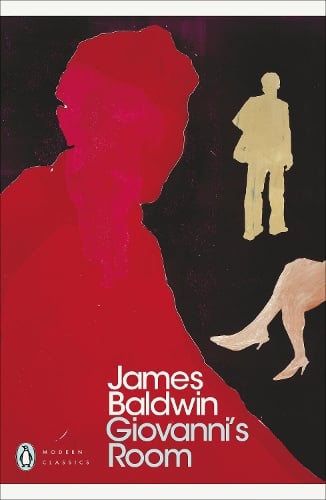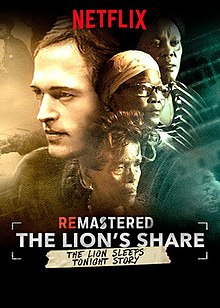Stephan Chambers, Marshall Institute Director
 My ‘read it over the summer’ pile is a source of joy and an act of self-delusion. Inspired by the brilliant Kieran Healy I will take delight at the end of this year in writing an argument for not reading the books I didn’t read. But the books I hope to have read include: Philp J Stern’s Empire, Incorporated, Marion Foukard and Kieran Healy’s The Ordinal Society, our colleague Conor Gearty’s Homeland Insecurity, and Wolfram Eilenberger’s The Visionaries. And for fun: Rachel Cusk’s Parade , Lauren Elkin’s Scaffolding, and Jen Beagin’s Big Swiss.
My ‘read it over the summer’ pile is a source of joy and an act of self-delusion. Inspired by the brilliant Kieran Healy I will take delight at the end of this year in writing an argument for not reading the books I didn’t read. But the books I hope to have read include: Philp J Stern’s Empire, Incorporated, Marion Foukard and Kieran Healy’s The Ordinal Society, our colleague Conor Gearty’s Homeland Insecurity, and Wolfram Eilenberger’s The Visionaries. And for fun: Rachel Cusk’s Parade , Lauren Elkin’s Scaffolding, and Jen Beagin’s Big Swiss.
Shanzeh Mahmood, Head of External Relations
 I recently read Amy Schiller’s The Price of Humanity: How Philanthropy Went Wrong And How To Fix It which is a very humorous, accessible and pointed critique of our move towards philanthrocapitalism, and reminder of how philanthropy can and should move back towards celebrating humanity and human flourishing. I had the pleasure of joining Amy at a virtual book club session hosted by I.G. Advisors last month to discuss the origins of her thinking and argument which, whether one agrees with or not, definitely merits discussion given the era of plutocracy we live in.
I recently read Amy Schiller’s The Price of Humanity: How Philanthropy Went Wrong And How To Fix It which is a very humorous, accessible and pointed critique of our move towards philanthrocapitalism, and reminder of how philanthropy can and should move back towards celebrating humanity and human flourishing. I had the pleasure of joining Amy at a virtual book club session hosted by I.G. Advisors last month to discuss the origins of her thinking and argument which, whether one agrees with or not, definitely merits discussion given the era of plutocracy we live in.
Along similar lines, I’ve also been listening to the BCC podcast Good Bad Billionaire (upon recommendation from my colleague Kristina) where each episode covers the story of a different billionaire, how they made their wealth and (very crudely) judges them as ‘good’, ‘bad ‘or ‘just another neutral billionaire’ based on different criteria like their power, legacy, villainy and philanthropy. Though the analysis is simple (particularly around philanthropy), I find it informative, light-hearted entertaining. My colleagues at LSE’s International Inequalities Institute have further insights on how useful the podcast is at reflecting on wealth inequality.
Alex Wright, Programme Delivery Manager
 I read ‘Giovanni’s Room’ (1956) and ‘The Seven Husbands of Evelyn Hugo’ (2017) this year, both offering different perspectives on the experience around race and sexuality from the 1950s onward. I found both of them moving and enlightening.
I read ‘Giovanni’s Room’ (1956) and ‘The Seven Husbands of Evelyn Hugo’ (2017) this year, both offering different perspectives on the experience around race and sexuality from the 1950s onward. I found both of them moving and enlightening.
I also recently watched ‘The Jury’ (on Channel 4 in the UK). Though occasionally rather sensationalised in presentation, this offered an interesting insight into the judicial process by recreating a court case with two separate juries, both unaware of the other. Unusually, the viewer and criminologists are able to see how the juries’ deliberations unfolded and how a decision is, or indeed isn’t, reached.
Jack Winterton, Research Officer
 Young people have a hard time of it at the moment. The world that adults have created for them is a disorientating phycological experience.
Young people have a hard time of it at the moment. The world that adults have created for them is a disorientating phycological experience.
Every child has their own unique path to follow but there are obstacles that they all face including an overdrive of self-criticism amplified by technology, a make it or fail attitude to schooling and social issues like climate change, and our inability to respond to them, that are constant sources of anxiety.
Inside Out 2 is a kind and delicate exploration of the challenges that adolescences face during their teenage years. It is kind because it offers an acceptance of the messiness of emotions instead of outdated ideas of toughening up or supressing difficult feelings. It is delicate because the characters dialogue breaks down the interaction between emotions in a way that we can all relate to.
The film is set inside the mind of Riley, a young girl, navigating the ups and downs of new relationships. Emotions are given characters, and these characters, each embodying a different emotion, guide Riley through her journey. Joy, Sadness, Anger, Fear, and Disgust return from the first film, joined by the newcomers including Anxiety. I’ll let you watch and meet the full cast of emotions.
“Inside Out 2” is a mirror held up to society, reflecting the emotional turmoil that young people face in today’s world. It is a gentle reminder that it’s okay to feel, to be overwhelmed and to be anxious. It teaches us that the full range of our emotions are not our enemies, but our guides. Aside from something that I wish teenage me could have watched; the film is just a lot of fun. Go back and watch the first film before watching part 2.
Carl Petter Moldestad, 100x Impact Accelerator Programme Manager
 I’m reading The Topeka School by Ben Lerner, which is a brilliant novel about a debate team champion from Topeka, Kansas written from his vantage point and that of other members of his family. It’s a brilliant mix of autobiographic stories from Lerner’s own life, intertwined with social commentary delivered through and influenced by psychological theories. Loving it.
I’m reading The Topeka School by Ben Lerner, which is a brilliant novel about a debate team champion from Topeka, Kansas written from his vantage point and that of other members of his family. It’s a brilliant mix of autobiographic stories from Lerner’s own life, intertwined with social commentary delivered through and influenced by psychological theories. Loving it.
I’m listening to the audiobook Pressure by Geir Jordet, an investigation into the process of elite football penalty taking and how players deal or don’t deal with the pressure of taking a penalty. It’s a great and timely listen, with stats and insights collected from over 750 penalties in men’s and women’s Euros, Copa America, and World Cups since the 1950s. I find it particularly interesting learning about the procedures the English men’s team and Gareth Southgate have put in place to combat the English national team’s bad history pertaining to penalty shootouts. Jordet draws parallels between his learnings from the psychology of the most pressurised moment in a football match and other high-pressure jobs.
I’m also enjoying The Story of China by Michael Wood which is a thorough introduction to Chinese dynasties, important figures, values and imperial and political developments – both as an examination of its vast and rich history but also as a backdrop for understanding Chinese politics and worldmaking today.
The Three Worlds of Welfare Capitalism by Gøsta Esping-Andersen has just recently been suggested to me by my colleague Jonathan Roberts. I’m very excited to get cracking on it!
Emma Bayes, Marketing Manager
 As a self-confessed history nerd, I eagerly watch history documentaries as soon as they’re released. If you also share my fascination with ancient Rome, especially after visiting the city and binge-watching Netflix’s documentary series Roman Empire, then Emperor of Rome by Professor Mary Beard is a must-read. This book delves into the lives, politics and intrigues of Rome’s rulers, offering a fresh perspective on the emperors who shaped history. Explore how power and legacy are entwined and get inspired to book your next trip to Rome.
As a self-confessed history nerd, I eagerly watch history documentaries as soon as they’re released. If you also share my fascination with ancient Rome, especially after visiting the city and binge-watching Netflix’s documentary series Roman Empire, then Emperor of Rome by Professor Mary Beard is a must-read. This book delves into the lives, politics and intrigues of Rome’s rulers, offering a fresh perspective on the emperors who shaped history. Explore how power and legacy are entwined and get inspired to book your next trip to Rome.
Kerryn Krige, Senior Lecturer in Practice
 Solomon Linda in a moment of improvisation, came up with the eight note melody Mbube which became “The Lion Sleeps Tonight.” With nearly 15million dollars in royalties, the documentary The Lions Share outlines how Linda’s family take on Disney in a copyright dispute of the more than USD15m in royalties. There’s no happy ending here, with the family circumstances unchanged, frustrated by an opaque legal system, and bitter disputes between trustees. Underlying these tensions is South Africa’s complex history and the fractured relationships from decades of exploitation and broken trust.
Solomon Linda in a moment of improvisation, came up with the eight note melody Mbube which became “The Lion Sleeps Tonight.” With nearly 15million dollars in royalties, the documentary The Lions Share outlines how Linda’s family take on Disney in a copyright dispute of the more than USD15m in royalties. There’s no happy ending here, with the family circumstances unchanged, frustrated by an opaque legal system, and bitter disputes between trustees. Underlying these tensions is South Africa’s complex history and the fractured relationships from decades of exploitation and broken trust.
We-Work – or the making or breaking of a USD47billion unicorn tracks the rise and fall of what at first glance, is a social economy organisation. Its start up principles embody reciprocal relationships, a community through work-ideology, that focuses on shared values, and giving back. CEO Adam Neuman: “people don’t want a career, they want a calling.” But there is an underlying hypocrisy that is steadily exposed, that juxtaposes the increasing billions invested. “They would spend any amount of money to feel good and look good to their employees.” The result we know. A dramatic valuation crash, and exposure that the equity promised to employees didn’t exist, whilst Neuman used the company to leverage capital to purchase property which he leased back to WeWork. He left with a half a billion dollar payout. An expensive reminder of why solidarity principles should mirror structures of ownership and control.
Jasper Fforde’s Thursday Next series is perfect summer reading. It is a social commentary on our modern world: the benevolence-as-corruption of large corporates (here the Goliath Corporation), and politicians, motivated by their voting public to make anything but, common sense decisions. Wales is a Socialist Republic, cheese is outlawed. Dodo’s have been re-engineered and time travel is possible. It sounds quirky (it is!), but the narrative mirrors today’s issues: self-interest, underfunding of administrations, blatant propaganda, and the suffocating pace of bureacratic decision making. Best of all, this is a series for literature lovers. Thursday is a Jurisfiction agent, who polices the Bookworld, solving crimes against literature. What’s not to love when the three most visited tourist sites in the Bookworld are Anne Hathaway’s cottage, the Bronte’s parsonage and Dickens’ house?
Corrina Summers, Institute Administrator
 I recently enjoyed Enter Ghost by Isabella Hammad, a novel that follows British-Palestinian actor Sonia on her first trip to her father’s homeland as an adult. Staying with her sister who teaches at an Israeli university, Sonia agrees to appear in an Arabic-language production of Hamlet in the West Bank. As the company rehearses, Sonia becomes acutely aware of the challenges of making art under occupation and re-examines her own family’s past. The novel offers a fascinating and nuanced insight into the relationships between ‘48ers’ (Palestinians who stayed within the Israeli boundaries drawn in 1948), those who emigrated, and those in the West Bank, and I would recommend the novel to anyone interested in the history and politics of the region.
I recently enjoyed Enter Ghost by Isabella Hammad, a novel that follows British-Palestinian actor Sonia on her first trip to her father’s homeland as an adult. Staying with her sister who teaches at an Israeli university, Sonia agrees to appear in an Arabic-language production of Hamlet in the West Bank. As the company rehearses, Sonia becomes acutely aware of the challenges of making art under occupation and re-examines her own family’s past. The novel offers a fascinating and nuanced insight into the relationships between ‘48ers’ (Palestinians who stayed within the Israeli boundaries drawn in 1948), those who emigrated, and those in the West Bank, and I would recommend the novel to anyone interested in the history and politics of the region.
I’m currently reading Vulture Capitalism by Grace Blakeley, a biting account of the false promises of neoliberalism. Blakeley makes the compelling argument that capitalism has not ‘failed’, but that the crises of the 21st century are the intended result of the capitalist system, and more than a ‘reimagining’ of the dominant economic model is required to rectify this. I’m also making my way through Ursula K. Le Guin’s Earthsea Cycle.
Julia Ziemer, Institute Manager
 I have recently enjoyed two popular fiction novels that I would recommend if you enjoy a nostalgic escape from the present day: David Nicholl’s Sweet Sorrow is a recounting of teenage first love set in 1990’s British suburbia, centred around a summer community drama workshop where the listless protagonist gets involved in the hope of winning over a girl. Nicholl’s captures the passion and angst of that age pitch-perfectly as well as the nostalgia for that time that comes later in life.
I have recently enjoyed two popular fiction novels that I would recommend if you enjoy a nostalgic escape from the present day: David Nicholl’s Sweet Sorrow is a recounting of teenage first love set in 1990’s British suburbia, centred around a summer community drama workshop where the listless protagonist gets involved in the hope of winning over a girl. Nicholl’s captures the passion and angst of that age pitch-perfectly as well as the nostalgia for that time that comes later in life.
Going back to 1970’s Ireland, Colm Toibin’s Long Island revisits the characters from his earlier novel Brooklyn, 20 years later. Themes of disappointment and second chances are brought to life by familiar central characters who are both ordinary and understated but a little on the edge of things, and willing to challenge the role society expects of them.
For a more challenging read, I am currently in the midst of reading Kairos a compelling novel by Jenny Erpenbeck translated brilliantly by Michael Hoffman. Set in 1970’s East Berlin, the narrative centres on an intense and at times dysfunctional relationship between a 19 year old and her lover 34 years her senior. The book interweaves the personal, psychological and political in an extraordinary narrative that explores themes of love, memory, loss and faith. It is sometimes bleak but worth it for the intense and fascinating window it opens onto a unique time and place in German history.





